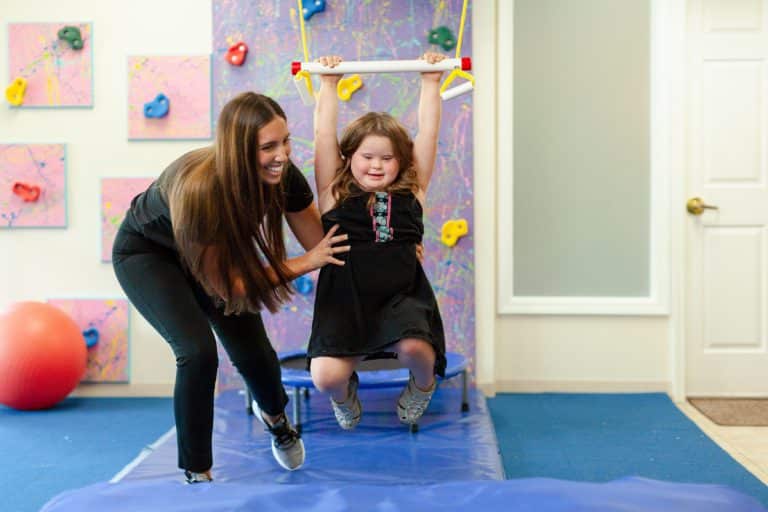
Steps Towards Raising a Mindful, Confident Child
We all want the best for our children. Creating an environment that’s mentally stimulating, engages them in meaningful communication, and enhances social confidence. Pediatric Therapy can help build habits and skills for children and families to improve everyday life. Many things can foster social confidence and communication skills in children as they grow.
Ways to Create a Mentally Stimulating Environment for Your Child
Hold Babies Frequently
A recent study suggested that the more a baby was held by his or her parents, the less likely the infant would develop attention deficit problems later in childhood.
Expressive Facial Gestures
Infants respond to parents whose facial expressions are more animated. In one experiment, babies turned away from mothers with dull facial expressions and turned toward those faces that were more expressive.
Wordplay Games
Singing songs and rhyming phrases are great activities that encourage the development of language skills.
Perform Mental Gymnastics
Playing games that stimulate the mind, particularly those that contain the element of strategy and that are not mainly based on chance (e.g., a roll of the dice), will build verbal skills plus improve powers of concentration, perception, and reasoning. Here are some recommendations for brain-building games you can do as a family:
• Chess
• Checkers
• Crossword puzzles
• Cryptograms
• Word jumbles
• Scrabble
• Solving mathematical puzzles
Ways to Build Your Child’s Social Confidence
Teach Social Values
Teach socially acceptable values and actions. Have your child be patient while other kids receive attention, take turns, and share toys. Children who snatch toys or do not know how to share often have trouble making friends.
Social Situation Plan
Be sure your child has a plan to follow during social situations. Discuss and role-play what to do in a new situation (how to get involved in a game or conversation, how to participate in a project, or how to start a conversation). Encourage your child to have a preset plan to strike up a conversation, which can be an effective tool for social success!
Mental Rehearsal
Have your child use mental rehearsals to prep for social challenges. Mental rehearsals build self-confidence and self-assurance. Mental rehearsals can be used when dealing with a bully, coping with an unfair event against your child, handling an embarrassing situation with the opposite sex, communicating with older children who misunderstand him/her, interacting with an authority figure, or dealing with a negotiation.
Team Sports
Get your child involved in age-appropriate team sports or other group activities so that not only can they share their interest but also effectively function in a team environment.
Play Dates
Allow your kids to invite other children to your home so that they can learn positive and healthy social interactions under your supervision.
Teach and model healthy friendships and relationships for your child. You are their primary resource for positive social interactions. Your kids not only look up to you but watch you closely. Your healthy example will help your little one grow into a positive, happy, socially-conscience adult.
Our specialized team can help provide guidance and care to help your child develop wonderful life skills. If you’re looking for a pediatric physical therapist, or if you have questions about your child’s development, contact us today. Our top priority is to help your child reach their full potential.
Written by Tiffani Bacon, Pediatric Physical Therapist
References:
Fratangelo, N. (2018). This Might Be The Key To Helping Your Kid Deal With Social Anxiety. Retrieved from https://www.mindbodygreen.com/articles/this-might-be-key-to-helping-your-kid-deal-with-social-anxiety
McGraw, P. (2004). Your Step-by-Step Plan for Creating a Phenomenal Family: Family First. New York, NY: Simon & Schuster, Inc.
The medical information contained herein is provided as an information resource only, and does not substitute professional medical advice or consultation with healthcare professionals. This information is not intended to be patient education, does not create any patient-provider relationship, and should not be used as a substitute for professional diagnosis, treatment or medical advice. Please consult with your healthcare provider before making any healthcare decisions or for guidance about a specific medical condition. If you think you have a medical emergency, call your doctor or 911 immediately. IvyRehab Network, Inc. disclaims any and all responsibility, and shall have no liability, for any damages, loss, injury or liability whatsoever suffered as a result of your reliance on the information contained herein.